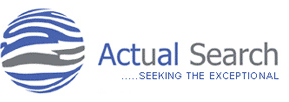 |

INTERVIEW TIPS
You are being interviewed because the employer wants to hire people - not because they want to trip you up or embarrass you. Through the interaction that will take place during the interview the employer will be searching out your strong and weak points, evaluating you on your qualifications, skills and intellectual qualities and the interviewer will probably probe deeply to determine your attitudes, stability, motivation and maturity.
Some "DO'S" and "DON'TS" concerning the interview
- DO plan to arrive on time or a few minutes early. Late arrival for a job interview is never excusable
- If the employer presents you with an application form to complete, DO fill it out neatly and completely. DON'T relax and rely on your CV or application or assume it will do your selling for you. Most employers will want you to speak for yourself
- DO greet the employer by their surname. Give the appearance of energy as you walk. Smile! Shake their hand firmly. Be genuinely glad to meet the employer
- DO wait until you are offered a chair before sitting. Sit upright in your chair. Look alert and interested at all times. Be a good listener as well as a good talker. Smile...
- DO look a prospective employer in the eye while you talk to them
- DO follow the employer's leads, but try to get the employer to describe the position and the duties to you early in the interview so that you can relate your background, skills and accomplishments to the position. Remember, although they are interviewing you, you should be interviewing them as well.
- DON'T answer questions with a simple "yes" or "no". Explain wherever possible. Talk about things which relate to the situation
- DO make sure that your good points get across to the interviewer in a factual, logical and sincere manner. Stress achievements
- DON'T lie. Answer questions truthfully, frankly and as "to the point" as possible
- DON'T ever make derogatory remarks about your present or former employers or companies. DON'T over answer questions. DON'T waffle
- DON'T enquire about SALARY, HOLIDAYS, BONUSES, RETIREMENT, etc. on the initial interview unless you are positive the employer is interested in hiring you. If the interviewer asks you what salary you want, indicate what you've earned but that you are more interested in opportunity than a specific salary at the present
- DO always conduct yourself as if you are determined to get the job you are discussing. NEVER close the door to an opportunity. It is better to be in a position where you can choose from a number of positions, rather than only one
During the course of the interview, the employer will be evaluating your negative factors as well as your positive factors. Listed below are negative factors frequently evaluated during the course of the interview and those which often lead to the rejection of the candidate.
- Poor personal appearance
- Overbearing - overaggressive - conceited "superiority-complex" -"know-it-all"
- Inability to express thoughts clearly - poor poise, diction or grammar. Too much waffling not enough content
- Lack of planning for career - no purpose or goals
- Lack of interest or enthusiasm - passive or indifferent
- Lack of confidence and poise - nervousness
- Over emphasis on money - interested in only the best money offer
- Evasive - makes excuses for unfavourable factors in CV
- Lack of tact - maturity - courtesy
- Condemnation of past employers
- Failure to look the employer in the eye
- Limp, fishy handshake
- Failure to ask questions about the job
- Persistent attitude of "what can you do for me?"
- Lack of preparation for the interview. e.g. failure to get information about the company resulting in inability to ask intelligent questions
- If you are interested in the position, ask for it, or ask for the next interview if the situation demands
- Don't be too discouraged if no definite offer is made or specific salary discussed. The employer will probably want to communicate with us (the agency) first, or interview more candidates, before making a decision
- If you get the impression that the interview is not going well, don't let your discouragement show. An employer may be genuinely interested in your application without you realising it
- Thank the employer for their time and their consideration of you. If you have answered the two questions uppermost in the employer's mind: (a) Why are you interested in their company? and (b) What can you offer? You have done all you can


SPECIALIST AREAS | FOR CLIENTS | FOR CANDIDATES | ABOUT US | REFER A FRIEND | CONTACT | TERMS & CONDITIONS | PRIVACY POLICY | SITE MAP
copyright @ 2023 Actual Search , all rights reserved